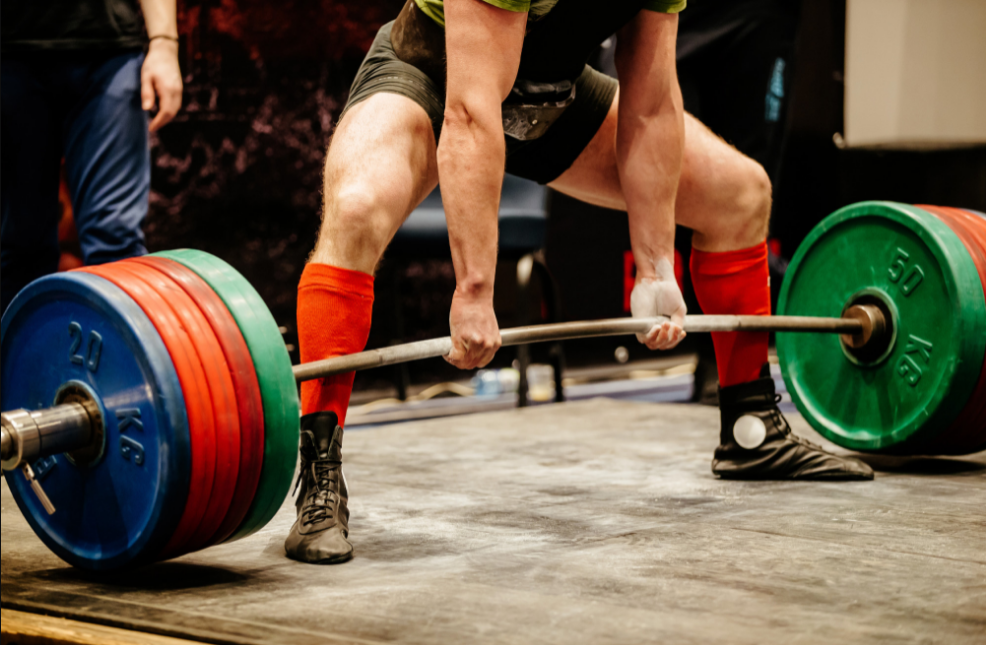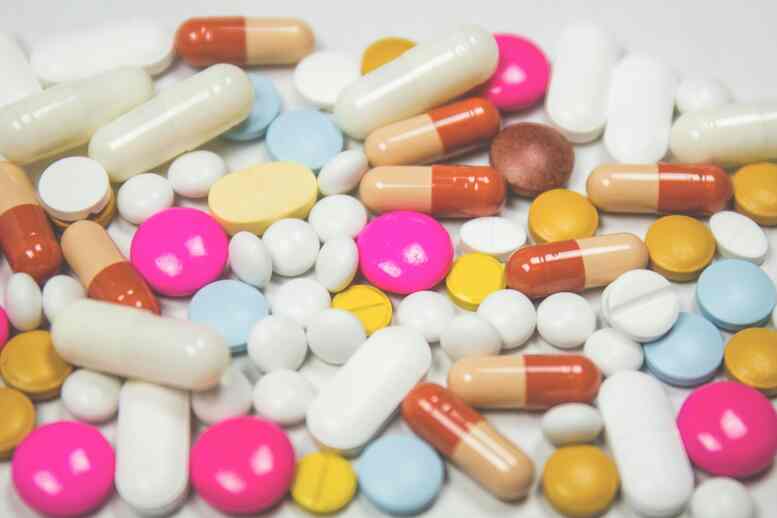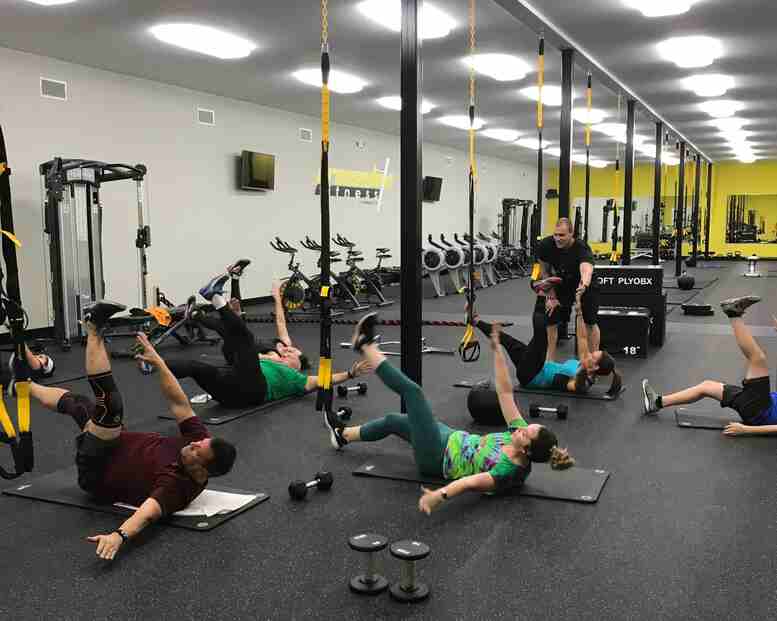Health
The Best Supplements for Weight Lifting

Building lean muscle mass provides numerous health benefits. It can help combat obesity, reduce the risk of injury, and decrease disease risks, among others. So if you’re looking to get healthier, lean muscle mass is the way to go.
Of course, building lean muscle mass can place significant strain on your body. For this reason, many muscle builders use supplements to help keep their muscles (and body) healthy while under stress.
When choosing the best supplements for weight lifting, you need to know what to look for. Continue reading to learn the essential muscle-building supplements you should be looking for.
Not All Supplements Are Created Equally
Before diving into the individual supplements themselves, it’s essential to talk about the quality of supplements. Not all supplements are created equally, and some could even include unreliable dosage information that can be dangerous. Always choose quality supplements from reliable distributors, like https://www.wilsonsupplements.com/.
Read online reviews for the supplement manufacturers and distributors before making any purchases. Avoid any companies with consistently poor reviews or ratings online.
Additionally, you may want to check out the Better Business Bureau’s website. Avoid companies with a lot of filed complaints or a handful (or more) of unsolved complaints.
You should also be cautious about how strong individual supplements are. If you’ve never taken these best supplements for weight lifting, it’s best to start low. Then, as your body builds up a tolerance to these supplements, you can increase your dose.
As a final word of caution, you shouldn’t start taking any new supplements if you have any preexisting health conditions. This is especially true for people who have any of the following:
- Heart disease
- Lung conditions
- Diabetes
- Kidney disease or conditions
- Liver diseases or conditions
- Immune problems
- Bone diseases
If you do have any of the following, it doesn’t mean you can’t use weightlifting supplements. Instead, it simply means you should speak with your doctor before starting them. Only your primary care physician can tell you if supplements are safe for you to use.
Protein
Protein is a crucial building block for all your body’s cells. However, protein’s primary job is to repair torn muscle cells and increase muscle size. For this reason, supplementing protein while weightlifting is essential.
Most people naturally get some protein in their diet since they can find it in meat, eggs, beans, and tofu. However, this isn’t always enough to experience the results you want from weightlifting.
A 2018 review of protein supplements found that they provided significantly increased results compared to those who didn’t take them. In particular, participants found they were stronger and experienced more muscle growth when taking protein supplements during prolonged resistance training.
Creatine
Creatine is a naturally occurring amino acid found in your body’s muscles. The body converts this amino acid into phosphocreatine, which is then stored in the muscles. Later, the body expends this as energy.
Creatine is a substance known for increasing muscle mass, but it has a specific benefit for weightlifters. Experts say that creatine is most beneficial to athletes who require short bursts of speed or strength. This includes sprinters and weightlifters.
Beta-Alanine
Beta-Alanine is an amino acid naturally produced by your liver. It can also be found in animal products like meat or poultry. Although you can receive some of this naturally through your diet and natural body processes, supplementing beta-alanine can help significantly during workouts.
The primary way this amino acid helps is by buffering the pH level in your muscle’s cells. The burning sensation in your muscles that weightlifters are so familiar with is caused by dropping pH levels. So, by helping keep pH levels up longer, this amino acid can help improve endurance during strength training.
If you supplement with beta-alanine, it’s important to use it before your workout. This will help prolong your muscle’s endurance so you can continue pushing yourself towards maximum results.
Caffeine
Most of the best weight lifting supplements contain caffeine. Most commonly, you’ll find caffeine in pre-workout supplements. This is because caffeine will boost energy levels.
When energy levels are boosted, you can go that extra mile during your workout session without tiring yourself out. When you can push yourself harder during any individual training session, you’ll see maximum results for the time put in.
L-Carnitine
L-carnitine is an amino acid derivative naturally made inside your body from two different amino acids – lysine and methionine. The purpose of L-carnitine is to support the breakdown of fatty acids for energy. Due to this, it’s often found in fat-burning supplements.
Supplementing with L-carnitine can help boost your metabolic rate, which allows you to burn more calories during your weightlifting sessions. This is perfect for those weightlifters who want to shed a little extra fat for better muscle definition. However, this isn’t the only potential benefit of L-carnitine supplementation.
Additionally, this derivative could help recovery rates after intense workouts. This could potentially mean milder soreness after weightlifting sessions, as well as a decrease in the duration of aches.
Branched-Chain Amino Acids
Branched-chain amino acids consist of three individual amino acids – leucine, isoleucine, and valine. These amino acids are naturally found in many high-protein foods. Examples of foods where you might consume branched-chain amino acids include eggs, dairy, meat, poultry, and fish.
The role of these amino acids in the body is to support healthy muscle growth and reduce muscle loss. Around 14 percent of your muscle’s amino acids are branched-chain amino acids.
While supplementing with these can be beneficial for anyone, it’s vital for weightlifters who don’t eat enough high-quality protein in their diet. For example, vegetarians and vegans would significantly benefit from a supplement containing branched-chain amino acids.
HMB
HMB is an acronym for beta-hydroxy beta-methylbutynate. This molecule is created naturally when the body processes leucine, an amino acid.
Some of the beneficial effects of protein and leucine are thanks to HMB. However, its most important role is in reducing the breakdown of muscle proteins. Supplementing with HMB means you’ll be helping to keep the muscle gains you’ve worked so hard for.
Zinc
Zinc plays a vital role in helping your body maintain healthy testosterone levels. Since testosterone is crucial for muscle mass, supplementing with zinc can help boost your gains.
However, zinc has another significant benefit that weightlifters may overlook. Zinc is crucial in supporting a healthy immune system. When the immune system is adequately supported, you’re less likely to become ill.
Each time you get sick and can’t work out, your progress is slowed. By supporting your immune system with zinc, you’ll be able to spend more days in the gym and fewer days in your sickbed.
Vitamin D
Vitamin D is a fat-soluble vitamin that can help increase testosterone levels. It also acts as a natural steroid hormone in its active form. As such, Vitamin D can assist in building both strength and muscle mass.
Vitamin D is created by the body naturally when bare skin is exposed to sunlight. It can also be found, in significantly lower levels, in dairy products like milk, cheese, and yogurt. This means that it’s crucial to supplement with Vitamin D during winter when the days are shorter, and your skin is more thoroughly covered.
Muscle building and increasing testosterone aren’t the only benefits of supplementing with Vitamin D. It can also help decrease the symptoms of depression and protect against bone diseases like osteoarthritis.
DHEA
DHEA is a hormone produced chiefly in your adrenal glands. Its purpose is to help balance hormones, including testosterone. In men with low testosterone levels, DHEA could be especially beneficial.
However, there is a word of warning with DHEA supplementation. Since it’s classified as an anabolic steroid and can improve athletic performance, the use of DHEA is banned in professional sports. Therefore, you shouldn’t take this supplement if you are currently or hope to become a professional athlete.
Glutamine
Glutamine is a protein building-block that assists the body in fast muscle recovery after intense weightlifting or marathon running. Glutamine is helpful because it draws salt and water into your muscle cells. In turn, these keep those cells hydrated and denser.
Since glutamine is a crucial part of protein, it can also support healthy muscle growth. Some protein supplements will contain added glutamine.
These Are the Best Supplements for Weight Lifting
The best supplements for weight lifting are those described above. Not only will they help you improve your gains, but they’ll also keep your injuries healthy while under stress.
Check out our other blogs if you still have questions about weight lifting supplements. You’ll find articles on this and related topics to help you learn more on the subject.
Health
Make a Difference in Lives by Learning How to Donate Plasma


Understanding Plasma: The Liquid Gold of Your Body
The Science Behind Plasma: What Makes It So Special?
Plasma, constituting approximately 55% of total blood volume, is often referred to as the “liquid gold” of the body. Its golden color is derived from the various proteins and nutrients dissolved within it. Composed mainly of water (about 90%), plasma also contains essential proteins, hormones, electrolytes, and waste products. The most critical proteins, albumin, globulins, and fibrinogen, play pivotal roles in maintaining osmotic pressure, immune responses, and blood clotting, respectively. Plasma serves not only as a transport medium for these proteins and cellular components but also delivers vital nutrients and hormones throughout the body. The unique composition of plasma allows it to perform diverse functions that are integral to human health, making it an invaluable resource in the medical field.
The Role of Plasma in Health and Medicine
In the realm of healthcare, plasma has a multitude of applications. Its derivatives, known as clotting factors, are used in treating hemophilia, a condition that impairs the body’s ability to control bleeding. Moreover, immunoglobulins extracted from plasma are vital in fighting infections and boosting the immune system in immunocompromised patients. Intravenous immunoglobulin therapy is used for patients with autoimmune diseases, helping to modulate and stabilize the immune response. Plasma donation is also crucial in developing therapies for conditions like burns, shock, and trauma, making it a lifeline in critical care situations. The ability to harness the properties of plasma for medical interventions underscores its significance, highlighting the urgent need for plasma donors to support these life-saving treatments.
Myths vs. Facts: Common Misconceptions About Plasma
Despite its importance, there are several myths surrounding plasma donation that can deter potential donors. A common misconception is that donating plasma is painful and excessively time-consuming. In reality, while there is a slight discomfort associated with the initial needle insertion, many donors report that the process is only minimally uncomfortable and takes between 45 minutes to an hour. Another myth is that plasma donation and blood donation are the same; however, they differ significantly. Plasma is extracted via a process called apheresis, where blood is drawn, the plasma is separated, and the remaining components are returned to the donor. Additionally, there is a fear that donating plasma might deplete vital nutrients. On the contrary, the body regenerates plasma rapidly, usually within 24-48 hours, and as a result, regular donation can contribute to a healthy lifestyle. Dispelling these misconceptions is essential for encouraging participation in plasma donation, a vital act that can save lives.
Becoming a Plasma Donor: Your Step-by-Step Guide
Eligibility Requirements: Are You Ready to Roll Up Your Sleeves?
Before you roll up your sleeves to donate plasma, it’s essential to understand the eligibility criteria established by various health organizations. Generally, donors must be at least 18 years old and weigh a minimum of 110 pounds (50 kg). This helps ensure that the donation is safe for both the donor and the recipient. Potential donors must also pass a medical screening, including a health history questionnaire and physical examination, to check for conditions that might disqualify them from donating, such as certain chronic diseases or recent infections. Additionally, individuals with a history of drug abuse or multiple sexual partners may face restrictions. It’s vital for potential donors to be honest during the screening process, as this ensures their safety and that of those receiving the plasma. Being aware of these requirements prepares individuals for the process and encourages a higher rate of successful donations.
The Donation Process: What to Expect When You Donate
Understanding the donation process can significantly alleviate any apprehensions about plasma donation. When you arrive at a plasma donation center, you’ll first check in and complete a detailed health questionnaire. Once your eligibility is determined, you’ll undergo a brief physical examination where healthcare professionals will check your heart rate, blood pressure, and hemoglobin levels. If you qualify, you’ll be seated comfortably in a donation chair, and a healthcare provider will clean your insertion site and insert a sterile needle into your arm. The apheresis machine then draws your blood, separating the plasma from other blood components. This process typically lasts 30 to 45 minutes, during which you are encouraged to relax, perhaps watching a movie or browsing the internet. After the donation, you’ll receive fluids and snacks to help replenish your energy. The professionalism and care exhibited throughout the process ensure that it is both safe and efficient, reinforcing the vital role each donor plays in saving lives through their generous contributions.
Preparing for Your Donation: Tips for a Smooth Experience
Preparation is key to ensuring a smooth plasma donation experience. Staying hydrated in the days leading up to your donation is crucial, as it helps increase blood volume and makes the vein selection process much easier. Drinking water, avoiding salty foods, and ensuring you have a balanced meal before your appointment are essential tips. Additionally, it is advisable to avoid alcohol and strenuous physical activities for 24 hours prior. Wearing comfortable clothing that allows easy access to your arms can also make the experience more comfortable. Bringing a book or music can help distract you during the donation process. Finally, don’t hesitate to ask the staff any questions you have about the procedure; they’re trained to support you and ensure your experience is as pleasant as possible.
The Impact of Plasma Donation: Changing Lives One Drop at a Time
Real Stories: How Plasma Donations Save Lives
The impact of plasma donation can be profoundly illustrated through real-life stories. For instance, consider a young boy named Alex suffering from hemophilia, who relies on clotting factor derived from plasma to lead a normal life. Due to the dedication of volunteer donors, Alex can participate in school activities and spend time with friends without constantly fearing severe bleeding incidents. Another inspiring example is that of Janet, a burn survivor. After a tragic accident that left her with extensive injuries, Janet was able to receive life-saving treatments that included plasma-derived therapies. The collective contributions of thousands of plasma donors nationwide ensure that stories like Alex’s and Janet’s become possible. These narratives emphasize the critical need for plasma donors, illustrating how one person’s act of generosity can create ripples of hope and healing across countless lives.
The Blood Plasma Shortage: Why Your Contribution Matters
As the demand for plasma-derived therapies continues to rise, so does the urgency to replenish the supply. According to recent studies, the United States is facing a significant blood plasma shortage, exacerbated by the increase in autoimmune and rare diseases that require ongoing treatments. Each year, millions of patients rely on these treatments, with around 70% of plasma being used to treat chronic and complex conditions. The current supply chain challenges mean that many therapies are at risk of being disrupted, threatening the health and lives of those who depend on them. By donating plasma, you play a vital role in combating this shortage, ensuring that hospitals have access to the necessary resources to treat patients effectively. Your contributions can literally mean the difference between life and death for individuals waiting for essential therapies.
You’re Not Just Giving: The Health Benefits of Donating Plasma
While the primary motivation for donating plasma is to help others, it also offers notable health benefits for the donor. Studies have shown that regular plasma donation can lead to improved cardiovascular health and lower blood pressure. The act of donating promotes the rapid regeneration of new plasma, stimulating the body’s natural processes and encouraging overall health. Additionally, many donors report feeling a sense of accomplishment and fulfillment from contributing to the greater good, which can enhance mental well-being. Donating plasma can also serve as a gentle reminder for individuals to maintain healthy lifestyles, as eligibility often requires donors to be in good health. This mutual benefit reinforces the notion that plasma donation is indeed a win-win scenario—supporting both the health of the recipient and the donor.
Getting Involved Beyond Donation: Join the Plasma Community
Advocacy and Awareness: Spreading the Word About Plasma Donation
Supporting plasma donation extends beyond just the act of giving; it’s also about raising awareness and advocating for its importance within your community. Advocating for plasma donation can take many forms, from participating in local awareness campaigns to hosting informational sessions. By sharing your experiences and the benefits of plasma donation, you can inspire others to join the cause. Utilizing social media platforms to share stories, statistics, and personal motivations can significantly impact public perception of plasma donation and its critical role in healthcare. Informing friends and family about local donation centers, or even organizing group donations, can create a community spirit around plasma donation, fostering a culture of giving that extends far beyond individual contributions. Your advocacy efforts can contribute to a more informed and engaged community, ensuring larger support for plasma donation initiatives.
Volunteering and Fundraising: How to Make a Broader Impact
Beyond donating plasma, there are numerous ways to support the cause through volunteering and fundraising efforts. Many plasma donation centers rely on volunteers to assist with logistics, educational outreach, and community events, providing a flexible opportunity for individuals to contribute based on their availability and skills. Fundraising initiatives, such as creating campaigns to support local donation centers or organizing charity runs, can raise awareness while also generating funds for essential operations, such as equipment purchases and community outreach programs. Collaborating with local businesses to sponsor events or challenges can amplify your efforts while building strong community partnerships. By leveraging your unique talents and resources, you can significantly enhance the visibility of plasma donation efforts, ultimately leading to a more robust donor base and increased support for life-saving therapies.
Resources for Donors: Connecting with Plasma Donation Centers
Connecting with your local plasma donation center is essential for making the most out of your donation experience. Many organizations have established websites where potential donors can find information about eligibility requirements, the donation process, and upcoming events. Utilizing resources such as the American Red Cross or the Plasma Protein Therapeutics Association can provide additional insights into where and how you can get involved. Additionally, social media groups and community forums can serve as platforms for donor experiences, peer support, and educational resources. Many centers also offer workshops and informational seminars aimed at educating prospective donors about the plasma donation experience and its importance in the medical field. Taking advantage of these resources not only enriches your understanding but also strengthens the plasma donation community as a whole.
Read More: Jacqulyn Elizabeth Hanley
Health
Combat Allergies with Smart Supplement Choices


Millions of people grapple with seasonal or year-round allergies, often turning to supplements to complement conventional treatments. With a growing range of products targeting those whose noses can never rest, hoping to finally get some relief, they often come away disappointed after stumbling upon ineffective formulations. Professional-grade supplements, though—those designed for immune system support and reducing histamine responses—stand out in terms of effectiveness. The trick is to understand how to choose the right bottle.
How Supplements Can Help with Allergies
Allergies start to rear their ugly heads whenever the immune system overreacts to harmless substances, releasing histamines in the process that trigger symptoms like sneezing, itching, or nasal congestion. While antihistamines are the easiest and most approachable way of dealing with this problem, supplements also propose a viable, holistic solution.
- Immune Health Support: Ingredients like quercetin and bromelain help stabilize mast cells, reducing histamine release.
- Histamine Balance: Vitamin C and specific herbal extracts can naturally reduce histamine activity.
- Improves Respiratory Wellness: If you pick a supplement with anti-inflammatory properties, using it can ease airway irritation and congestion.
Key Ingredients to Look For
For those who frequently suffer from allergies, reading the above list alone probably gave you some relief. Don’t worry, we’ve got actual tips here, too, alongside a list of ingredients that can help you ease some of the worst symptoms:
- Quercetin: A flavonoid that calms histamine release and offers antioxidant support.
- Nettle Leaf: Historically used for allergy relief, it helps regulate immune responses.
- Vitamin C: The generic and often underestimated vitamin C also acts as a natural antihistamine.
- Probiotics: These promote gut health, which plays a vital role in overall immune function. Certainly not a must, but a nice-to-have any day!
- Bromelain: Extracted from pineapple, it has anti-inflammatory effects that are beneficial for sinus health.
All combined, these ingredients act synergistically to address the root causes of heavy allergic reactions rather than merely masking symptoms.
Quality Above All: Why Source Matters
Fanciful claims and promises of extraordinary results are one thing. Actually delivering on said promises is another. The unfortunate truth about the current supplement market is that separating fairytale items from the quality players is often more difficult than it should be. After all, it’s your health we’re talking about; there should be no room for smoke and mirrors here.
Regardless, selecting high-quality products from trusted providers ensures potency and safety. Individuals seeking relief should only turn to professional-grade products. Otherwise, you’re likely throwing money down the drain.
Professional-grade products are often:
- Clinically Tested: Backed by research that confirms their efficacy.
- Hypoallergenic: Free from common allergens, like gluten, soy, and dairy, to not exacerbate your issues further
- Free of Contaminants: Manufactured with rigorous quality controls.
With how debilitating and infuriating dealing with your allergic reactions can get, buying cheap simply doesn’t make that much sense. Quality allergy products that are able to actually grant you some much-needed relief are worth all the money in the world, and then some.
The Takeaway
Quality and the right formulation are paramount when it comes to allergies. Opting for professional-grade products tailored to allergy relief can make managing symptoms more effective. If there’s a lesson to be learned here, it’s to take good care of yourself, and prioritize your health any way you can!
Health
Find the Best Gym in Lynchburg – Crosswhite Athletic Club is Here for You


Finding a gym Lynchburg can feel overwhelming because there are so many options. But choosing the right one is very important for your fitness journey. A good gym will not only help you stay in shape but also keep you motivated. Many people struggle to work out alone at home, so joining a gym can make a big difference. When searching for gyms Lynchburg contact Crosswhite Athletic Club it is important to find a place that has everything you need. You want a gym with great equipment, friendly trainers, and fun workout programs. Also, the right gym should make you feel welcome and comfortable. A clean space with a positive atmosphere will help you enjoy your workouts. If you are looking for a gym that offers all these things, contact Crosswhite Athletic Club today. It is the perfect place to start your fitness journey and reach your health goals.
What Makes a Gym Great?
Not all gyms are the same. Some have only basic machines, while others provide advanced equipment and personal training. A great gym should offer a mix of workout options so that people with different goals can benefit. It should also have a supportive environment where beginners feel comfortable. Clean spaces, friendly trainers, and well-maintained machines make a gym even better. When searching for gyms in Lynchburg, it is essential to find a place that meets these needs. Additionally, a gym should provide group classes, weightlifting areas, and cardio machines. This way, you can try different exercises and stay motivated. Many people stop working out because they get bored. But a gym that offers a variety of workouts can help keep things exciting. If you want a place that has everything, Crosswhite Athletic Club is the perfect choice. It is designed to help everyone enjoy fitness and reach their goals.
Why Choose Crosswhite Athletic Club?
If you want a gym that offers everything in one place, Crosswhite Athletic Club is a great choice. It is not just a regular gym—it is a fitness center built for people of all fitness levels. The club has modern exercise machines, expert trainers, and exciting workout programs. Whether you are a beginner or an athlete, you will find the right exercises here. Additionally, the gym is known for its welcoming environment, making it easier for members to stay motivated. Unlike some gyms that focus only on machines, Crosswhite Athletic Club offers personalized training and group sessions. This means you can get the support you need while working out. Also, the club is clean and well-maintained, ensuring a safe and comfortable experience. If you are searching for gyms in Lynchburg, this gym is an excellent option. Contact Crosswhite Athletic Club today and start your journey toward better health.
Variety of Fitness Programs Available
People have different fitness needs. Some want to lose weight, while others want to build muscle or improve flexibility. That is why a good gym should offer various workout options. At Crosswhite Athletic Club, there are many programs to choose from. You can take part in strength training, cardio exercises, and yoga. There are also sports activities like tennis, which add more fun to your routine. Additionally, group fitness classes make workouts more enjoyable and help keep you motivated. If you prefer one-on-one guidance, the gym has personal trainers who can create a plan just for you. When searching for gyms in Lynchburg, finding a place with different programs is important. This way, you can try new workouts and avoid getting bored. If you want a gym that keeps exercise fun and exciting, Crosswhite Athletic Club is the perfect choice.
A Friendly and Supportive Environment
The environment of a gym plays a big role in keeping members motivated. A good gym should not only provide great equipment but also create a welcoming space where everyone feels encouraged. At Crosswhite Athletic Club, the trainers and staff are always ready to help. Whether you are a beginner or an experienced athlete, you will receive the support you need. Additionally, the gym has a friendly community where people motivate each other to do their best. Many people feel nervous when they first join a gym, but a positive atmosphere makes the transition easier. This is why so many people looking for a gym in Lynchburg choose this club. Also, the staff ensures that all machines are safe to use, creating a stress-free workout experience. If you want a gym that helps you stay motivated and feel comfortable, Crosswhite Athletic Club is the right place.
Family-Friendly and Community-Focused
A gym should not only focus on individuals but also provide opportunities for families to stay active together. At Crosswhite Athletic Club, the fitness center is designed to be family-friendly. The gym offers activities for kids, sports training, and wellness programs for all ages. This makes it a great choice for parents who want to set a healthy example for their children. Additionally, working out as a family can be a fun way to bond and stay fit together. The club also has a strong sense of community, where members encourage and support each other. Many gyms only focus on workouts, but Crosswhite Athletic Club goes beyond that by creating a place where people connect and grow. If you are searching for gyms in Lynchburg, this club offers a unique experience that is perfect for individuals and families alike.
How to Get Started at Crosswhite Athletic Club
Starting at a new gym should be simple and stress-free. At Crosswhite Athletic Club, new members can visit, take a tour, and meet the trainers before deciding to join. This helps you feel comfortable and understand what the gym has to offer. Additionally, the club provides different membership options to fit various needs. Whether you want full access to all facilities or prefer specific classes, there is a plan for you. If you are searching for gyms in Lynchburg, you should check out this gym to see what makes it special. Also, the staff is always available to answer questions and help you find the best workout plan. Many people put off joining a gym because they feel unsure, but this club makes the process easy. If you want to start your fitness journey, contact Crosswhite Athletic Club today and begin a healthier lifestyle.
Final Words
Choosing the right gym is the first step toward a healthier life. A great gym will not only help you stay in shape but also keep you motivated and excited about working out. If you are looking for a gym in Lynchburg, Crosswhite Athletic Club is the perfect place for you. With top-quality equipment, expert trainers, and a welcoming environment, this gym has everything you need. Additionally, the variety of workout programs ensures that you will never get bored. Whether you are new to fitness or an experienced athlete, this club offers something for everyone. Plus, the supportive community makes workouts more enjoyable. Instead of waiting, take action today! Contact Crosswhite Athletic Club and explore the amazing facilities for yourself. The best time to start your fitness journey is now, and this gym is ready to help you achieve your health goals.
-



 Biography6 years ago
Biography6 years agoJacqulyn Elizabeth Hanley is the Mother of Liza Soberano?
-



 Home5 years ago
Home5 years agoEpson L3110 Driver Free Download Latest Updated Version
-



 Games4 years ago
Games4 years agoBest Free To Play MMORPG To Try This 2021
-



 Biography6 years ago
Biography6 years agoAmanda Levy Mckeehan Biography, Family, Net Worth, Age, Affairs, Facts
-



 Biography6 years ago
Biography6 years agoWho is Rose Dorothy Dauriac? Scarlett Johansson Daughter?
-



 Biography6 years ago
Biography6 years agoJessica Ditzel Secret Information that Nobody Knows | Joe Rogan’s Wife
-



 Biography6 years ago
Biography6 years agoWhat is the relation of Nathaniel Larry Osorno with Liza Soberano?
-



 Home6 years ago
Home6 years agoLiza Soberano Biography, Age, Family and Boyfriends































